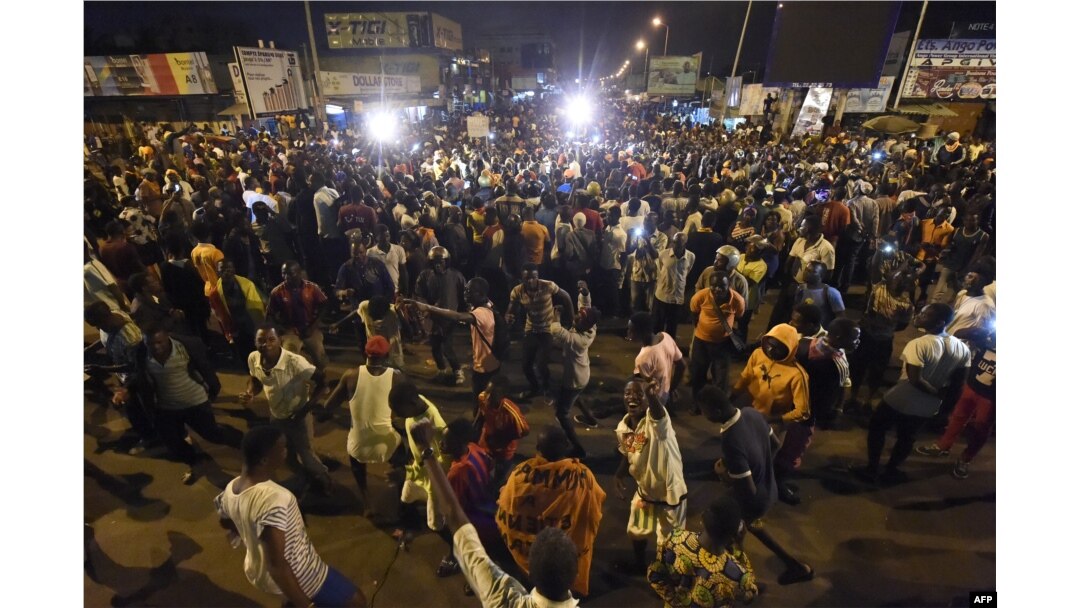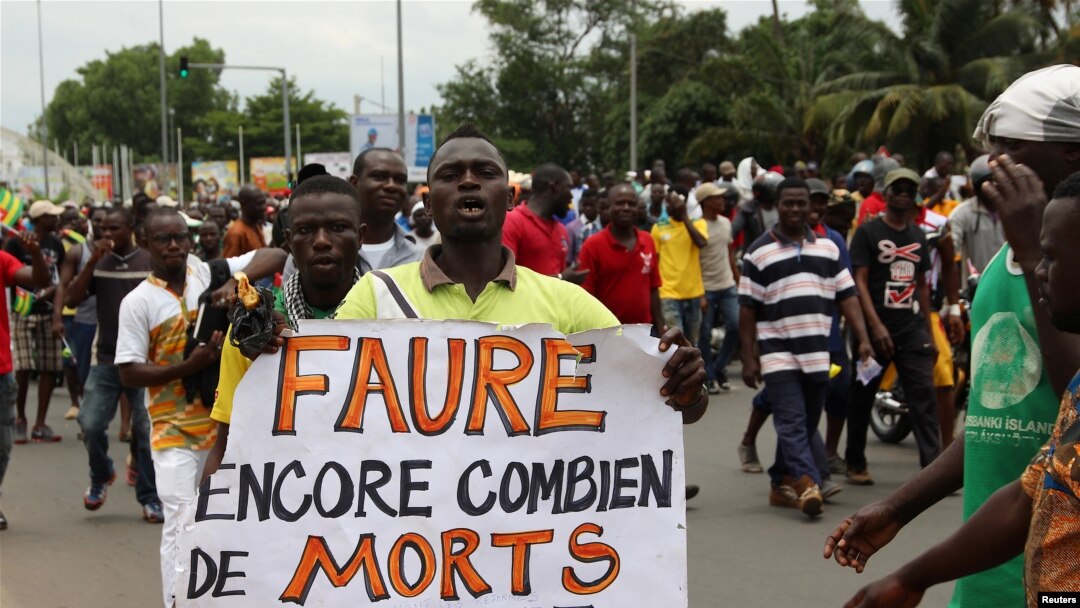Lawmakers in Togo began debating presidential term limits Friday, after days of protests calling for constitutional reform and the departure of the ruling family.
The West African nation has been ruled by one family for 50 years, and its current president, Faure Gnassingbé, has held power since 2005. Gnassingbé’s opponents are demanding a two-term limit for presidents, two rounds of voting in elections and the right of the Togolese diaspora to vote.
The demonstrations began on September 6, and security forces have used tear gas and physical force, most recently on Wednesday, to disperse the crowds. Government supporters have organized counter protests to voice support for the ruling party.
People interviewed this week by VOA in the streets of the capital, Lomé, did not mince words about their demands. “We have been governed for years, and now we’re exhausted,” said one protester. “All that this family has done, sorry. They must go. As soon as possible.”
Opposition leaders organized a walkout from parliament earlier this week after participating in a special session to address the constitutional crisis. That session ended abruptly following heated debate.
“For us, it’s about discussing, studying and adopting the project of revising the constitution,” said Isabelle Ameganvi, deputy for the opposition National Alliance for Change (ANC) party. “That’s what the Togolese people want, and we will stick to it.”
Ruling party leaders called for calm and said the president is open to reform.
“We want to move forward,” said Christophe Tchao, deputy for the ruling political party, the Union for the Republic (UNIR). “We want this to lead to a consensus that will be a positive state for all Togolese people.”
UN seeks term limits
During the September 6 protests, Amnesty International reported that the leader of an opposition party was confined to his house, which was surrounded by security forces. During earlier protests in August, two were killed and 28 people sentenced to prison terms, Amnesty said. The government also shut down internet access.

Opposition supporters keep an all-night vigil to press for constitutional reform, during anti-government protests led by a coalition of opposition parties in Lome, Togo, Sept. 7, 2017.
The U.N. is concerned by the crisis and is calling for the adoption of term limits in the country, saying the era of “presidents for life” is over in Africa. The global body warned of the possibility of violence like that seen in other parts of the continent where presidents sought to extend their terms.
“Our main perspective is to advise the Togolese to take those actions to prevent an escalation,” Mohamed Ibn Chambas, the U.N. Special Representative for West Africa and the Sahel, told Reuters. “We are in a region where the security challenges are real and menacing, and so we don’t want to see any deep political crisis.”
During a discussion on VOA’s Washington Forum, Nicolas Babina, president of UNIR France, a branch of the ruling political party, said that reform has always been a high priority for President Gnassingbé.
“The government, long before the protests, it was the order of the day to make constitutional and institutional reforms,” Babina said. “Since the opposition parties have created the impression that there is instability and trouble in the country, to appease them, the government has moved up the calendar to address these issues.”
But opposition leaders say the president has had ample time to make changes. They called for an immediate “emergency session” of parliament to revise the constitution.
“We are in an emergency situation. If you look at the number of people who have gathered in the street to call for reform, the people even demanding the resignation of the president. This is an emergency,” Michel Kinvi, an opposition representative living in the United States, said on Washington Forum.
“There has been abuse; there have been acts of violence. Because we are conscious and because we are acting in good faith, we have to follow the emergency procedures instead of the normal procedures,” Kinvi said.
Jacques Aristide contributed to this report


